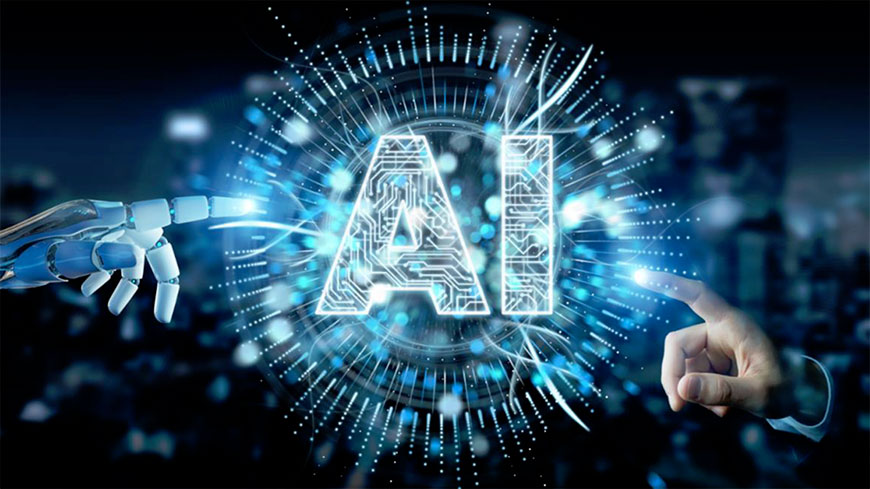What is Responsible Artificial Intelligence (AI)?
What is Responsible Artificial Intelligence (AI)?
Concerning the moral issues with artificial intelligence, there is a need to create responsible artificial intelligence using the definitions provided in this article. We will look at the four considerations needed when taking charge of artificial intelligence.
There are many concerns about artificial intelligence, such as unfair decisions, layoffs, and privacy and security breaches. Worse, many of these issues are specific to artificial intelligence. This means that existing guidelines and rules are inappropriate for dealing with artificial intelligence. This is where responsible AI comes in. Its purpose is to address these issues and create accountability for artificial intelligence systems.
AI and machine learning are pervasive in our daily lives, and from cars to our social media, AI has helped our world work faster than ever before.
As these technologies integrate into our daily lives, there are many questions about ethics and the creation and use of these technologies. Artificial intelligence tools are models and algorithms based on real-world data, thus reflecting real-world injustices such as racism and misogyny, among many others. This data leads to patterns that perpetuate stereotypes, support certain groups of people against the majority, or unfairly delegate resources or access to services. All of these results have far-reaching implications for consumers and businesses.
While many companies have begun to identify these potential problems in their artificial intelligence solutions, only a handful have developed structures and policies to address them. Artificial intelligence and social justice can no longer function as two separate worlds. They need to influence each other to create tools that help us build the world we want to see. Addressing ethical questions about artificial intelligence and understanding our social responsibilities is a complex process involving challenging work and many people’s sacrifices.
Why do we need responsible artificial intelligence?
When we talk about artificial intelligence, we usually mean a machine learning model used in a system to automate something. For example, a self-driving car can take pictures with sensors. A machine learning model can use these images to predict (for example, to predict that the object in front of us is a tree). The car uses these predictions to make decisions (for example, turn left to avoid hitting a tree). We refer to the whole system as artificial intelligence.
This is just an example. Artificial intelligence can be used for everything from insurance to cancer diagnosis. A distinctive feature is that there are no restrictions on system decisions. This can show many possible problems, and businesses need to express a clear direction to utilizing artificial intelligence. Artificial intelligence is responsible for a monitoring and management framework that aims to do just that.
This framework can include details of what data can be collected and used, how models should be evaluated, and how to deploy and monitor models optimally. This framework can also determine who is responsible for the negative consequences of (AI). Frameworks will vary between companies. Some define specific approaches, and others will be more open to interpretation. They are all looking to achieve a goal and create artificial intelligence systems that are interpretable, fair, secure, and respectful of users’ privacy.
Responsible AI goals
The first area mentioned is interpretability. When we interpret a model, we explain how to predict it. An AI system can reject your mortgage application or diagnose cancer. Even if these decisions are correct, the user will probably want an explanation. Some models are easier to interpret than others and make explanations easier. Responsible artificial intelligence can create interpretable models or use less interpretable models.
The fairness of the model is about interpretability. Artificial intelligence systems can make decisions that discriminate against certain groups of people. This bias is due to the bias in the data used to teach the models. In general, the more interpretable the model, the easier it is to ensure fairness and correct any bias. We still need a responsible (AI) framework to determine how fairness is assessed and what to do when a model is found that makes unfair predictions. This is especially important when using less interpretable models.

The future of artificial intelligence is responsible.
When it comes to artificial intelligence, companies are expected to adjust. This means that they must develop and implement their own AI guidelines. Companies like Google, Microsoft, and IBM all have their guidelines. One of the problems in this area is that the principles of responsible (AI) may be inappropriately applied in industry. Smaller companies may not even have the resources to create the artificial intelligence responsible for their company.
One potential solution is for all companies to follow the same guidelines. The European Commission, for example, has recently published ethical guidelines for reliable artificial intelligence. This instruction mentions seven main conditions that artificial intelligence must have to be reliable. Using these guidelines helps companies ensure that their AI systems meet the same standards.
The real question is – can companies be trusted to regulate themselves?
The AI and Machine Learning Status Report 2020 includes responses from 374 organizations working with data / AI. 75% of organizations said that (AI) is an important part of their business. However, only 25% of them said that fair AI is important. This indicates that the answer is no; we can not depend on them. For common procedures to be useful, they must be followed as well. In other words, guidelines should be turned into rules/regulations, and companies should be punished for not following them.
This seems to be the path we are on. In Europe, new regulations have recently been proposed. These rules are based on the ethical guidelines mentioned above and will affect many industries. There are currently no such regulations in the United States. However, executives at technology companies such as Google, Facebook, Microsoft, and Apple have called for more data and artificial intelligence laws. So it seems that doing so is only a matter of time.
Four considerations of Responsible Artificial Intelligence (AI)
Here are some practical tips to keep in mind when embarking on a journey to responsible artificial intelligence.
- Create a space that allows people to express their questions and concerns.
- Know what to look for or at least where to start.
- Meet people where they are, not where you want them to be
- Have the courage to adapt as you learn.
Create a space that allows people to express their questions and concerns.
When studying ethics in any situation, encountering unpleasant truths will follow. The strongest teams in the fight against (AI) are responsible for being honest with themselves. These teams recognize the preferences in their data, models, and themselves. They also evaluate how these biases influence the world near them.
As a team, we need to create spaces that allow us to talk freely about issues that may be controversial without fear of repercussions. This needs the support of executives. Sometimes, it will be easier to meet and discuss the team without managers and then present group ideas to managers. This level of anonymity can help create a sense of security because the ideas presented by the team cannot be pursued in one person. Communicating openly and giving honest feedback allows us to deal with these questions effectively. In the fight for moral AI, this is not a team of people against each other; this team is against possible problems in the model.
Know what to look for or at least where to start.
Finding problems in artificial intelligence solutions can be difficult. Poor performance of a model in the training suite may indicate that the training population is not representative of the real world. For example, presenting a minority can lead to a speech tool that misinterprets accents or a filter that detects only white faces. Many other things can happen.
Meet people where they are, not where you want them to be
Successful teams are made up of different people, including age, experience, and background in all aspects of their lives. This is primarily accompanied by a different understanding of (AI)’s ethical questions. The growing body of research and discourse on responsible artificial intelligence contains terms and concepts that everyone may not know. Some people may feel prejudiced about social justice issues, while others have not even heard of some of them. The voices of everyone on the team deserve to be heard, and creating a common language and framework for discussion and understanding is crucial to building AI.
Have the courage to adapt as you learn
While it is important to be up to date on current issues in social justice and (AI), it is just as important to be willing to accept the unknown. The process of achieving artificial intelligence involves anticipating change, being open to continuous learning, and being aware that problems may arise that do not have clear answers.
AI is a fast-paced industry, and agility and a willingness to focus are often part of the game. However, the desire to change the approach for ethical reasons or stop progressing to deprive the tool currently available to users requires courage. The goal is not just to successfully import a tool or model from a production pipeline. The goal should be to stay on the cutting edge of artificial intelligence technology while ensuring that the end product is fair and representative of the world in which we live.
The responsibility of the responsible artificial intelligence is on everyone.
Our collective responsibility is to ensure that models are built to fight injustice rather than perpetuate it. This should start with creativity, be an essential part of the R&D life cycle, and continue until the release and for the rest of the product life cycle. Data science and research teams and other teams committed to ensuring artificial intelligence will never succeed without executive support.
Companies and institutions that consider responsible (AI) a long-term commitment and measure success on a revenue-by-revenue basis enables their teams to ask questions and worry without fear of consequences. To express. This creates a cycle of reflection and reflection that answers the ethical questions we ask about building and the use of artificial intelligence. Mistakes will be made in this way, and we aren’t usually the ones that handle avoiding innovation to avoid possible harm. Instead, our job is to look at our progress critically to make the world a fairer place.

